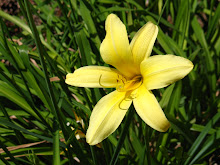Princess Olga was born around 890. Her “origins are not known with certainty, but she may have come from Pskov, [Russia.] She was probably of Varangian (Scandinavian) heritage. Olga married Prince Igor I of Kiev in about 903. Igor was the son of Rurik, who is considered the founder of Russia. Igor became the ruler of Kiev, a state which included parts of what is now Russia, the Ukraine, Byelorussia, and Poland.” (source) However, Igor got greedy. He raised taxes on his subjects by triple! The Derevlians revolted and murdered Igor. (Early)
Looking to gain more power, the Derevlians’ prince Mal asked Olga to come and marry him. Olga was furious, but she concealed it so as not to spoil her plan of revenge. “Olga made this reply, ‘Your proposal is pleasing to me; indeed my husband cannot rise again from the dead. But I desire to honor you tomorrow in the presence of my people.’ Olga pretended to show them great honor by having her men carry the Drevlians' boats from the river Dniepr towards the Prince's residence... and straight into a huge pit. She then commanded that they should be buried there alive, and they were thus buried.” (source)
“Olga then sent messages to the Derevlians to the effect that, if they really required her presence, they should send after her their distinguished men, so that she might go to their Prince with due honor, for otherwise her people in Kiev would not let her go. When the Derevlians heard this message, they gathered together the best men who governed the land of Dereva, and sent them to her. When the Derevlians arrived, Olga commanded that a bath should be made ready, and invited them to appear before her after they had bathed. The bathhouse was then heated, and the Derevlians entered in to bathe. Olga's men closed up the bathhouse behind them, and she gave orders to set it on fire from the doors, so that the Derevlians were all burned to death.” (source)
However, Princess Olga was still angry. “Olga sent another message to Prince Mal, saying she was coming at last. But she wanted to mourn at Igor's gravesite and give him a proper memorial with the traditional banquet. She asked Mal and his favored men to be her guests, and to bring plenty of mead. Once finding Igor's grave, Olga's men got busy building a proper burial mound while she wept like a dutiful wife. When the funeral rites were complete, she went with Mal to the hall for the feast. Mal inquired about the escorts that he had sent her, and Olga told him that they were on the way accompanied by her personal bodyguards. Olga and her people hosted the Drevlians and kept the mead flowing. Prince Mal and his men were so happy that everything seemed to be going their way that they never noticed how little drink was being consumed by Olga and her companions. When the Drevlians were finally incapacitated by mead, Olga's men went about with swords and killed every single Drevlian in the hall. It is estimated by historians that several hundred men were killed that night alone.” (source)
Nevertheless, the princess was still unsatisfied and as infuriated as ever. It seemed that no amount of Drevlian deaths could avenge the death of her one husband. She asked the Drevlians to give her three pigeons and three sparrows from each house as a tribute. They gladly agreed. “Now Olga gave to each soldier in her army a pigeon or a sparrow, and ordered them to attach by thread to each pigeon and sparrow a piece of sulfur bound with small pieces of cloth. When night fell, Olga bade her soldiers release the pigeons and the sparrows. So the birds flew to their nests, the pigeons to the cotes, and the sparrows under the eaves…[and set the houses on fire.] There was not a house that was not consumed, and it was impossible to extinguish the flames, because all the houses caught on fire at once. The people fled from the city, and Olga ordered her soldiers to catch them. Thus she took the city and burned it, and captured the elders of the city. Some of the other captives she killed, while some she gave to others as slaves to her followers.” (source) She made the rest pay a heavy tribute. Finally, Olga settled down to rule as regent until her son, Svyatoslav, was of age in 964. (source)
“In 957, she visited Emperor Constantine VII in Constantinople. He admired her looks and intelligence, noting to her that 'You are fit to reign in this city with us.'…[Later, she became a Christian and agreed to be baptized.] Before her baptism, Constantine asked her hand in marriage, but Olga deferred, claiming that she wanted to be baptised an Orthodox Christian first. Again, after the baptism, Constantine requested her hand in marriage, but the quick-thinking Olga tricked him (since he was her godfather in baptism), noting that he called her his daughter in baptism and so such a union is forbidden under Christian law.” (source)
“After Princess Olga returned to Kiev, she was unsuccessful in converting her son or very many others. Her example, however, may have helped to influence her grandson, Vladimir I, who was the third son of Svyatoslav” (source) and was in line for the crown. “The city of Kiev became the political and religious center of Russia.” (Hicks 333)
Works Cited
“Early Russia & the Fall of Constantinople” Movie. (The one where the guy dresses up.)
Hicks, Laurel Elizabeth. Old World History & Geography in Christian Perspective. U.S.A., A Beka Book. 1999.

No comments:
Post a Comment